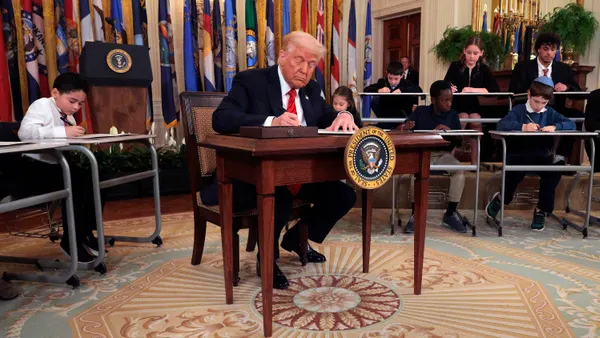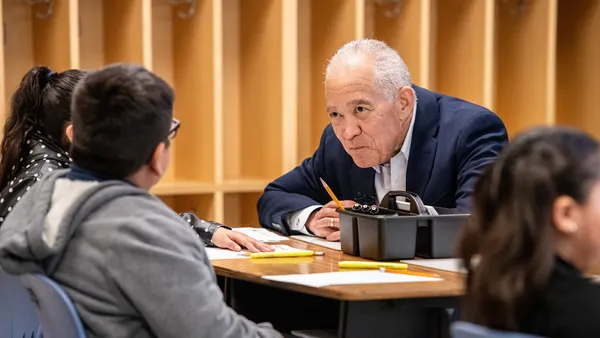About a dozen former federal special education leaders are urging Congress to reject any efforts to move oversight of special education services out of the U.S. Department of Education, according to a letter sent to lawmakers Monday.
The letter — signed by federal special education leaders from Republican and Democratic presidential administrations since the 1960s — also asked Congress to reject President Donald Trump's plan to combine into a block grant certain funds under the Individuals with Disabilities Education Act in fiscal year 2026.
The letter, sent to leaders of the House and Senate education appropriations subcommittees, follows Monday's U.S. Supreme Court decision allowing the Education Department to continue downsizing while legal challenges play out in the lower courts.
The ruling means the Education Department can move forward with its reduction in force of nearly half its workforce, including those in the Office of Special Education and Rehabilitative Services.
OSERS oversees the Office of Special Education Programs, which monitors states’ compliance with IDEA. No employees in OSEP were let go during a massive March 11 reduction in force, according to an April 28 letter from the Education Department to Sen. Lisa Blunt Rochester, D-Del. Overall, however, the RIF halved the agency’s total workforce from 4,133 to 2,183.
"The decision by the Supreme Court yesterday to allow the Administration to lay off a huge number of employees will severely damage educational opportunities in our country," said Stephanie Smith Lee, policy and advocacy co-director at the National Down Syndrome Congress, in an email Tuesday to K-12 Dive. Lee, a former OSEP director in the George W. Bush administration, was one of the letter’s signees.
The Supreme Court's decision also clears the way for the Education Department to carry out other changes, such as moving some responsibilities to other agencies. On Tuesday, the department announced it would move forward with plans to give the U.S. Department of Labor more oversight of career and technical education programming.
Trump and U.S. Education Secretary Linda McMahon have said they want to move special education oversight from the Education Department to the U.S. Department of Health and Human Services, although no formal plan has been made public.
Shifting education responsibilities to other agencies would help the federal government run more effectively and give states more flexibility and autonomy, supporters said.
According to a February statement from the National Down Syndrome Congress, however, removing Education Department oversight of special education could mean states interpret the implementation of IDEA differently, leading to inconsistencies across the country.
"IDEA is an education and a civil rights law, not a social service, and it must remain in a department dedicated to education to ensure strong oversight, enforcement, and accountability," National Down Syndrome Congress said.
In their letter, the former federal special education officials also noted that IDEA has enjoyed mostly bipartisan support in Congress since it became law 50 years ago. But a current Republican-led proposal to consolidate IDEA's preschool funding and support for teacher training, technical assistance and special education research "would have an immediate detrimental impact on special education, students with disabilities, schools and states," they said
The Education Department's fiscal year 2026 proposed budget would consolidate some grants that serve different purposes so states and districts have more spending flexibility. Opponents say this would remove guaranteed funding for certain programs by leaving it up to each state whether to fund them.
The administration's budget calls for level funding IDEA at $15.5 billion for the fiscal year starting Oct. 1.













